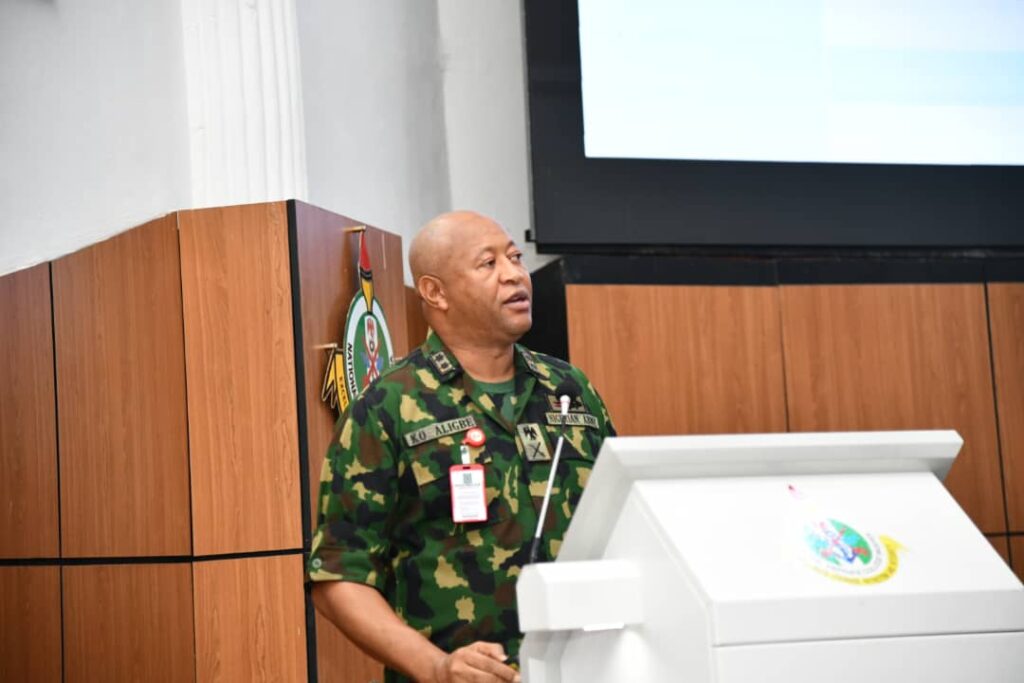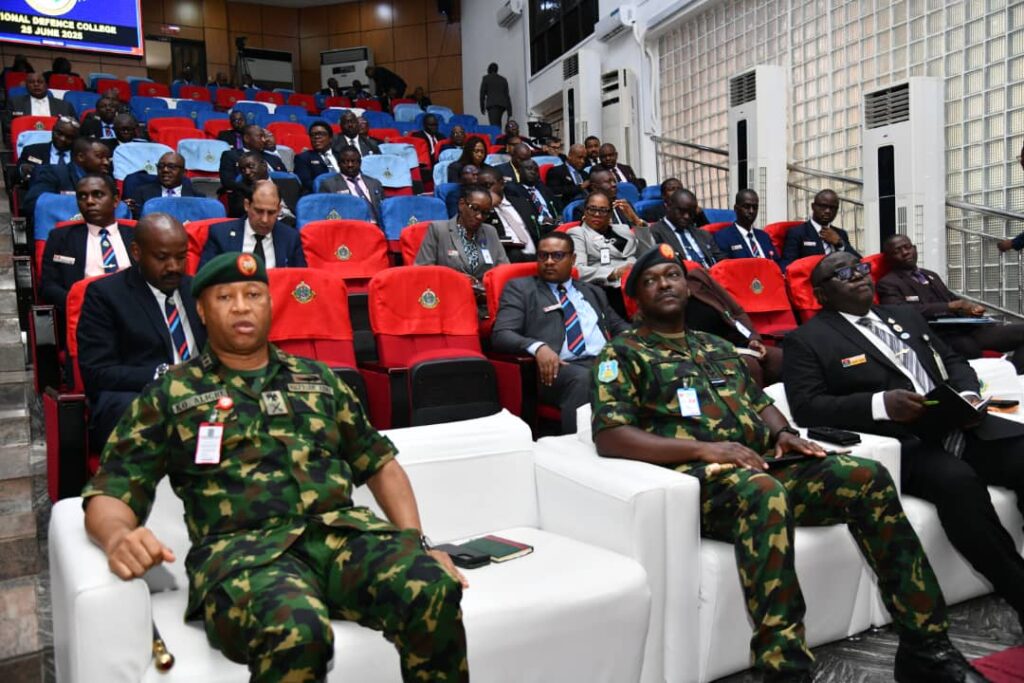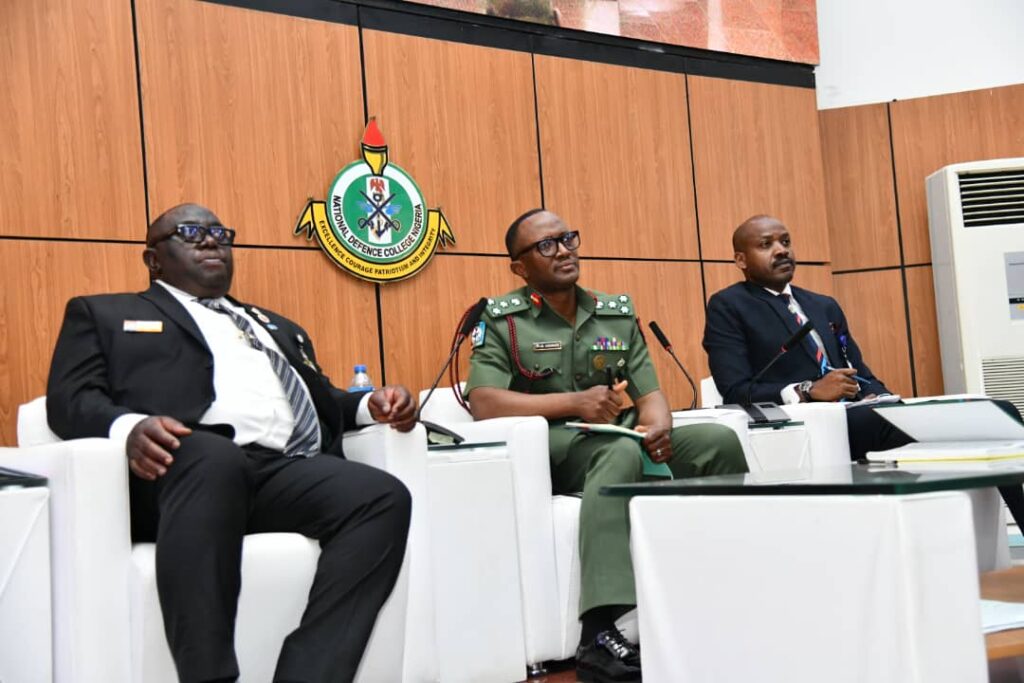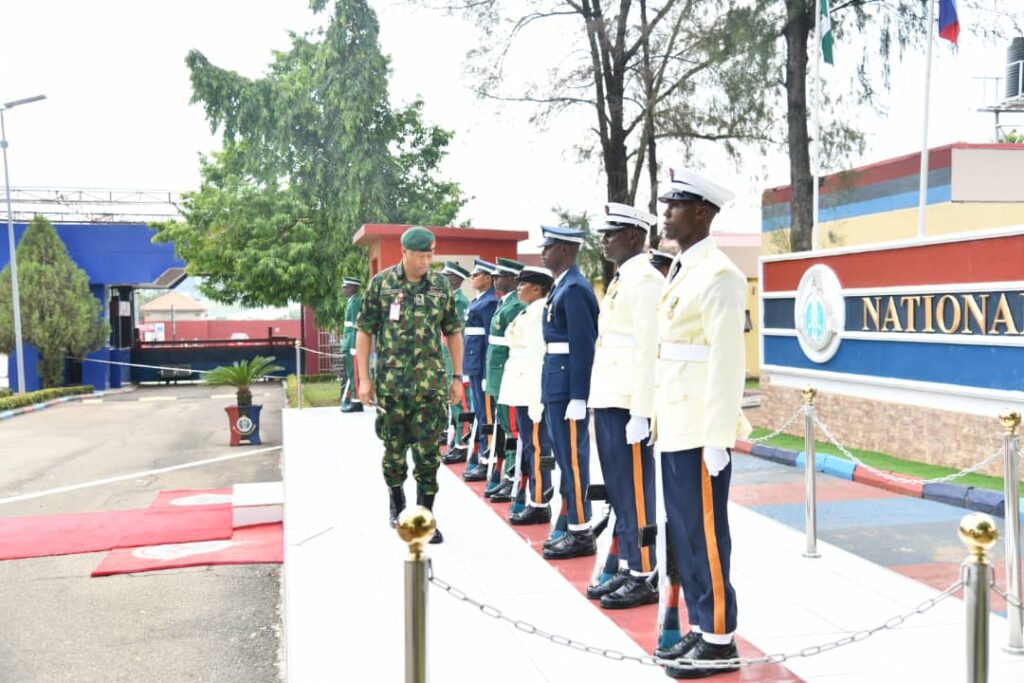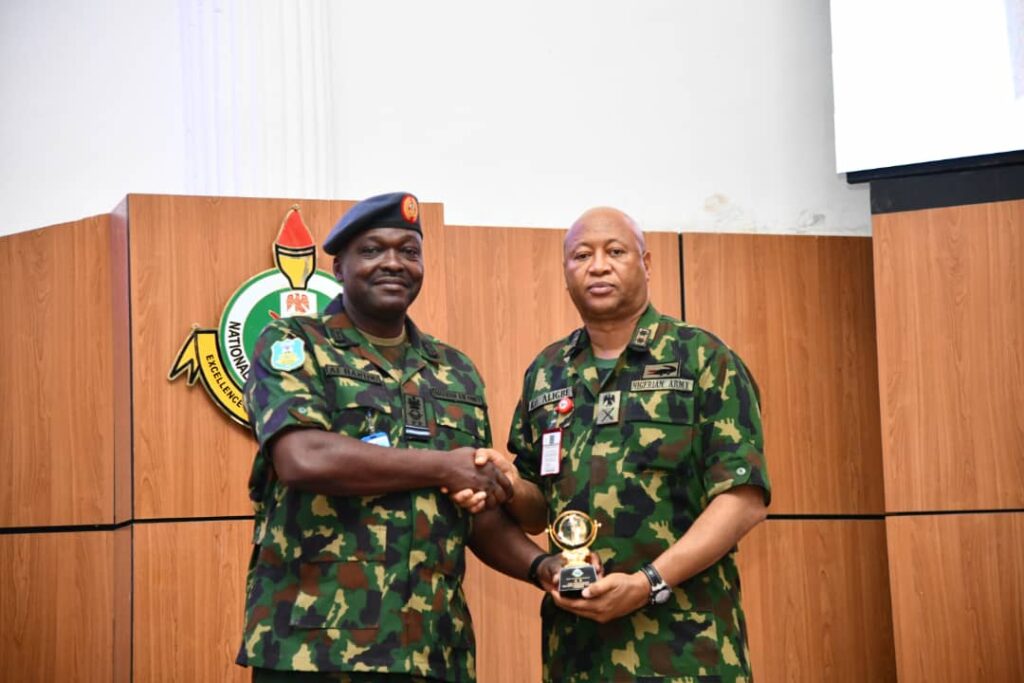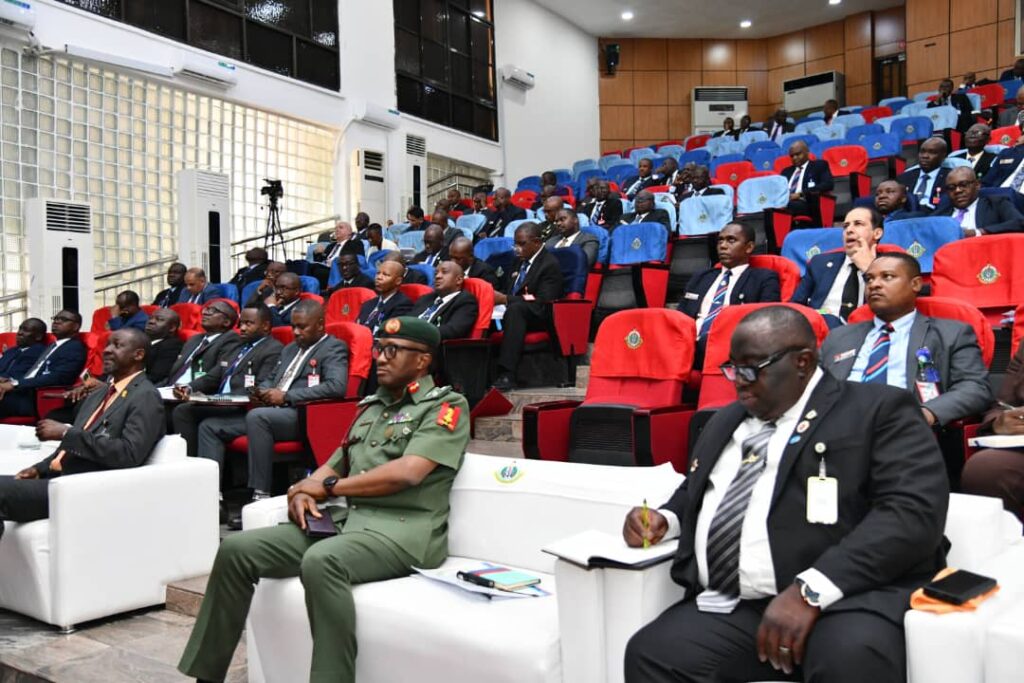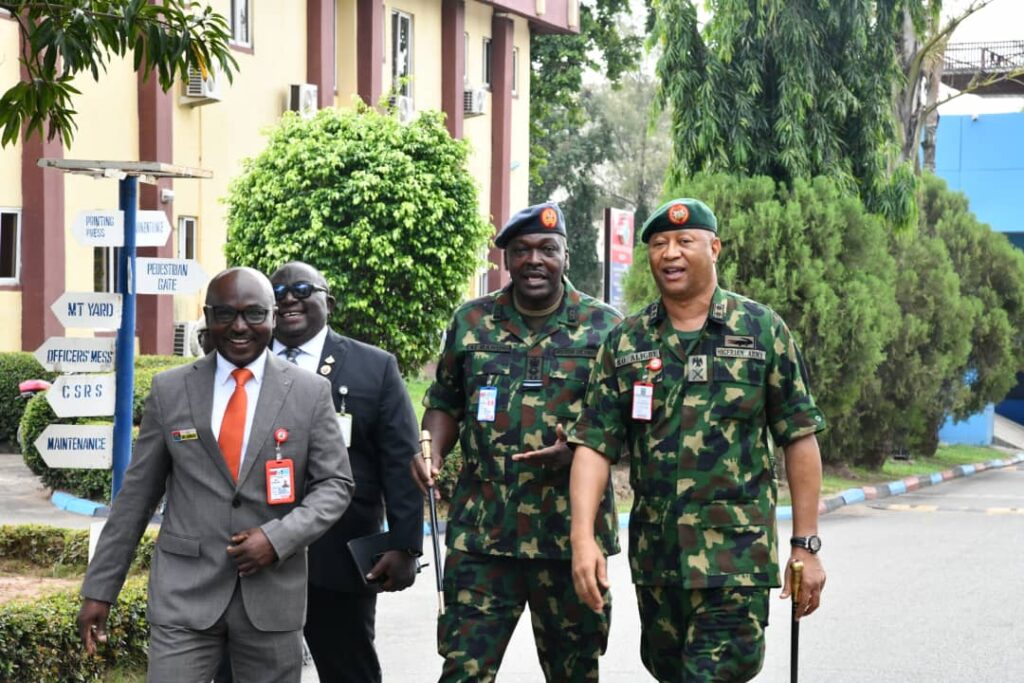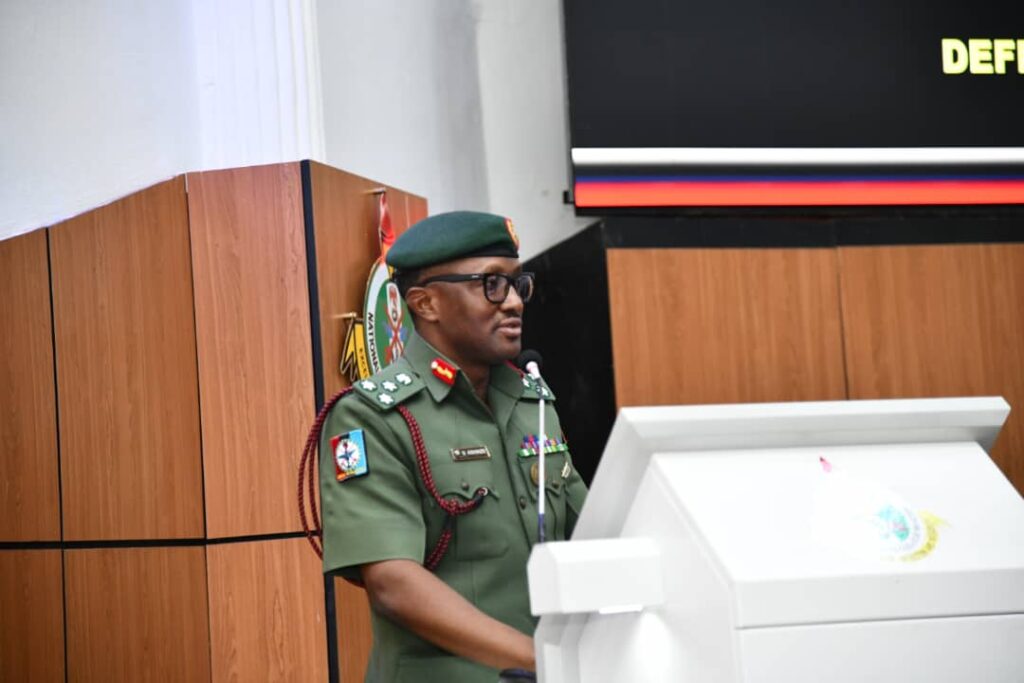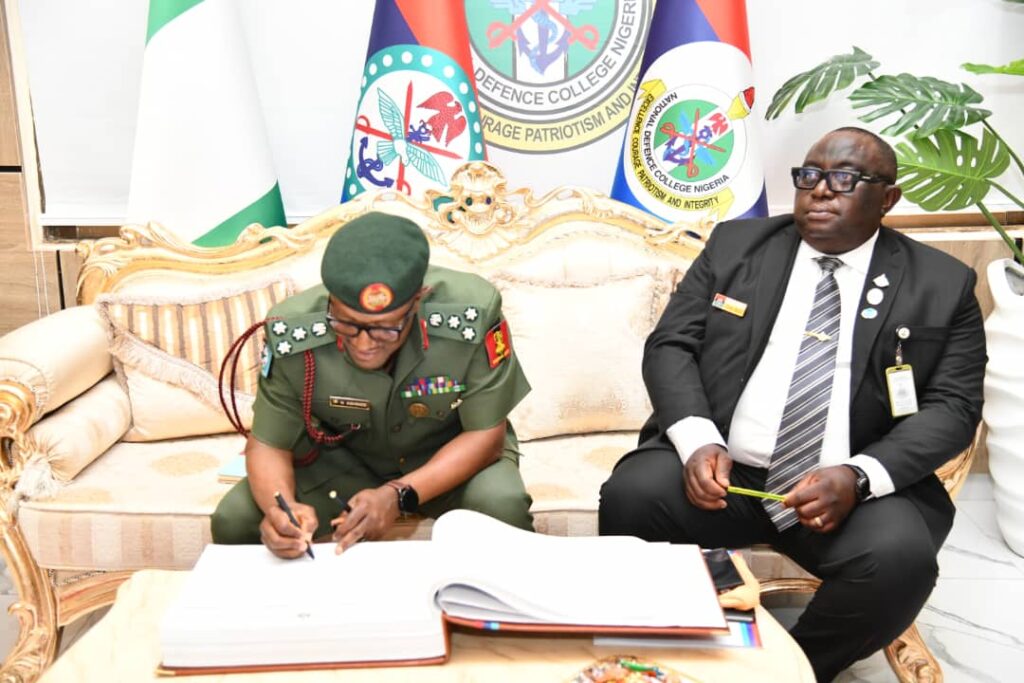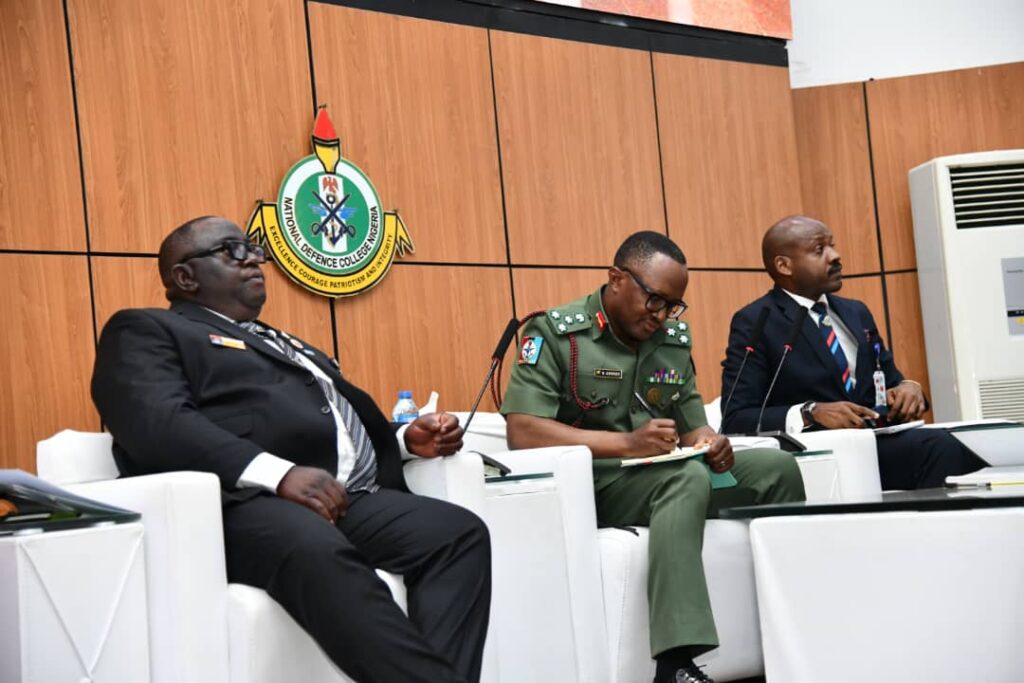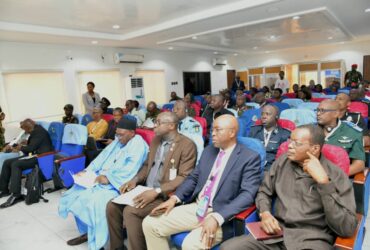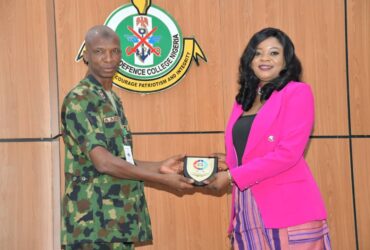TRADOC Commander Advocates Ongoing Review of Military Doctrine
As part of the commencement of Module 9 – Higher Management of Defence – for participants of Course 33 at the National Defence College (NDC), Abuja, the Commander, Nigerian Army Training and Doctrine Command (TRADOC), Major General Kevin Aligbe, has emphasised the need for continuous review and refinement of the Armed Forces of Nigeria’s doctrine and training systems.
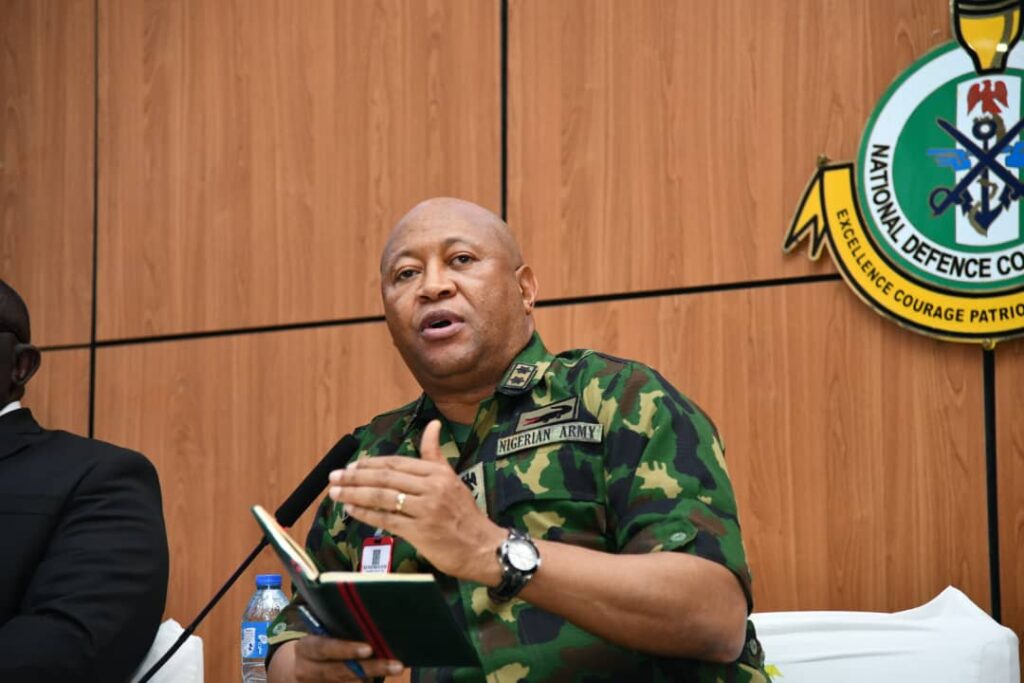
Delivering a lecture titled “Strengthening Institutions for National Development,” Major General Aligbe underscored the importance of aligning military doctrine with the evolving nature of joint and multinational operations, particularly in light of Nigeria’s dynamic security environment. He noted that the shifting character of modern warfare demands a departure from outdated strategies and calls for innovative approaches to counter emerging threats effectively. He further stressed that institutional strengthening – anchored on robust military doctrines – is essential for sound defence management and national development. According to him, doctrine serves as the cornerstone for operational cohesion, strategic foresight, and inter-service synergy.
Highlighting the progress made, the TRADOC Commander referenced the current Nigerian Army Doctrine launched in September 2022, which comprises twelve comprehensive chapters addressing areas such as the geostrategic landscape, operational conduct, and asymmetric warfare. He encouraged participants to critically interrogate existing paradigms and offer fresh perspectives that will enrich doctrine and policy formulation.
In a related lecture, the Chief of Defence Intelligence (CDI), Major General Emmanuel Undiandeye, represented by Brigadier General Nicholas Ashinze, presented a paper titled “Threat Assessment and National Security.” He advocated the adoption of non-kinetic strategies to complement traditional military operations in addressing the challenges posed by non-state actors and hybrid threats. The CDI noted that non-kinetic approaches – including psychological operations and strategic communications are essential in shaping perceptions, building trust, and securing public support. These methods, he argued, are increasingly vital in a battlespace where distinctions between war and peace, combatants and civilians, and physical and virtual arenas are becoming increasingly blurred.
At the end of the session, the College Secretary, Air Vice Marshal Ayodele Hanidu, presented mementoes to the guest lecturers on behalf of the Commandant, Rear Admiral Olumuyiwa Olotu appreciating their valuable contributions. AVM Hanidu affirmed that the lectures marked a critical phase in the curriculum. He noted that they serve to prepare participants for strategic-level leadership in defence management, aligning with the objectives of the Higher Management of Defence module.




